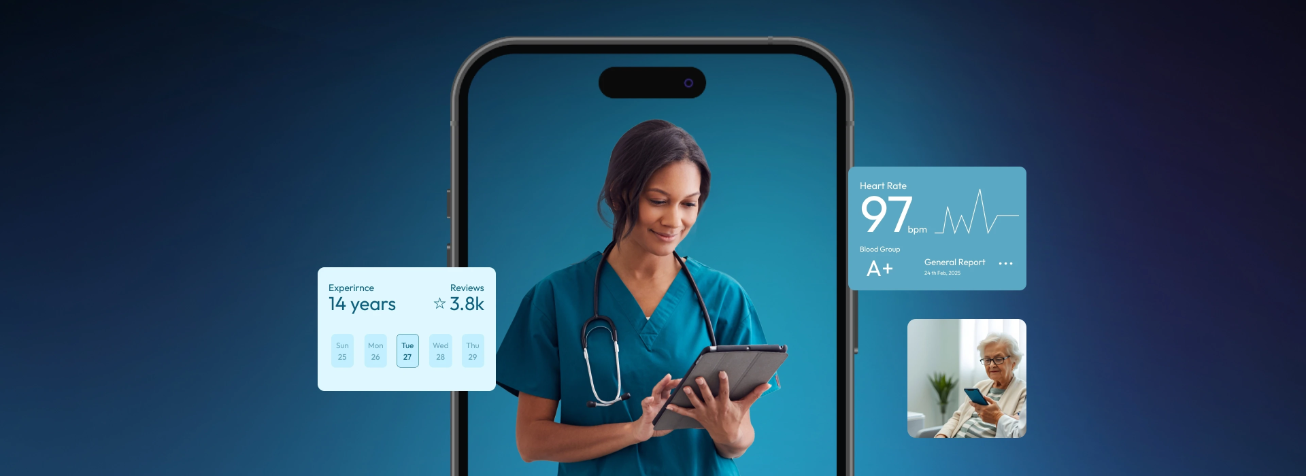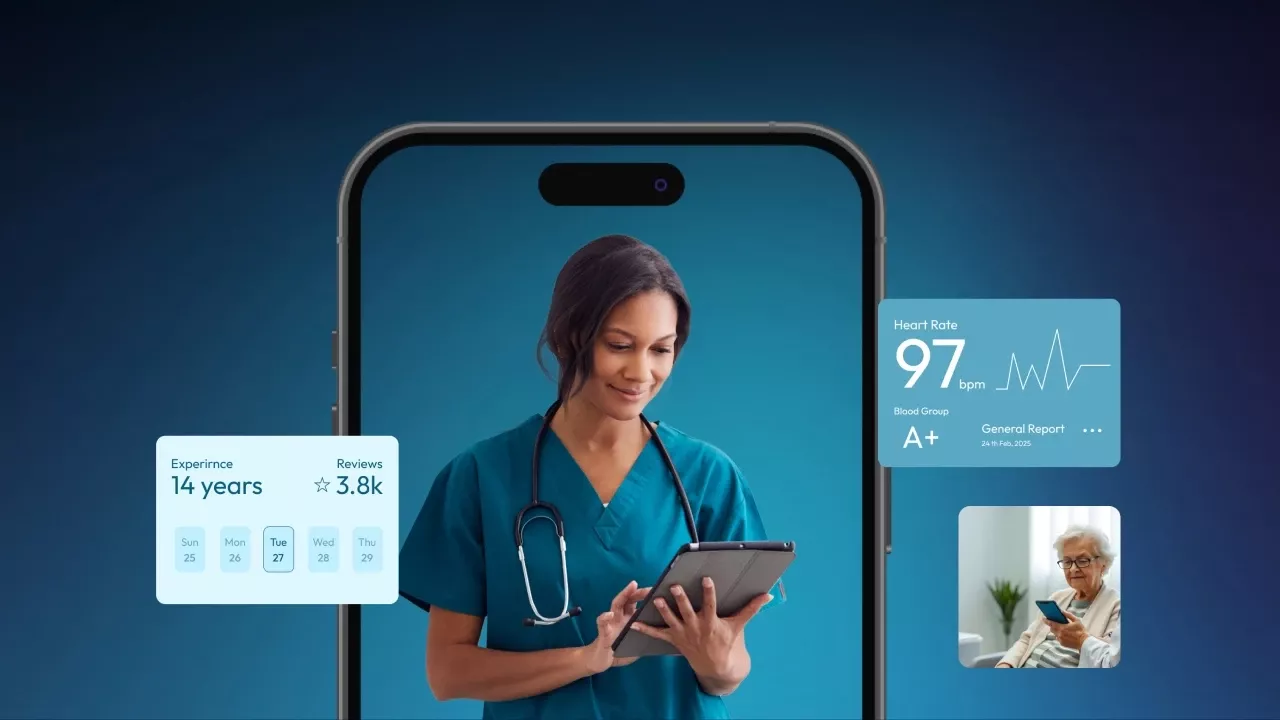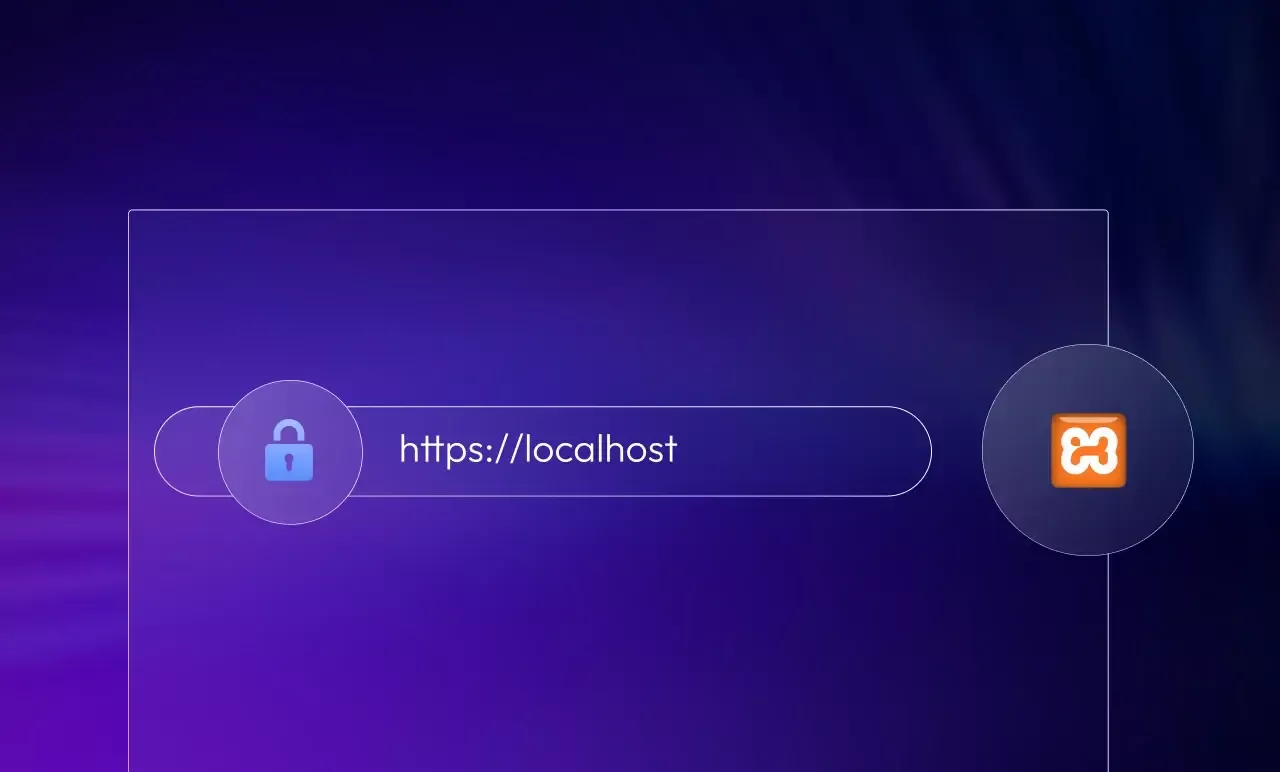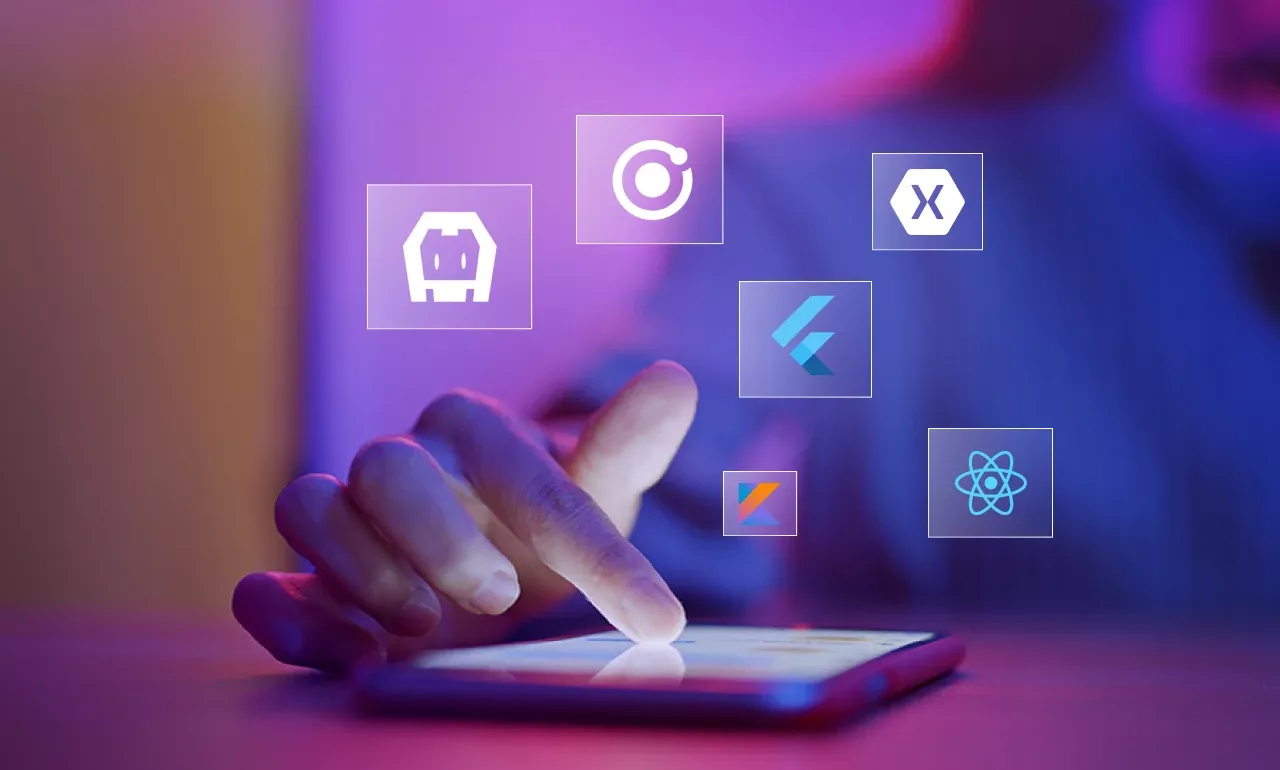The Power of Data Visualization Using Tableau
Benefits of Mobile Apps in Healthcare: Revolutionizing Patient Care
The healthcare sector is undergoing a significant transformation, driven by the challenges of a growing, aging population and the rise of chronic diseases. This shift has emphasized the need for resilient, technology-driven solutions that enhance healthcare accessibility and sustainability. The benefits of mobile apps in healthcare are at the forefront of this evolution, helping to streamline service quality, operational efficiency, and communication.
Mobile healthcare apps are redefining care delivery by enabling remote consultations, diagnostics, and appointment scheduling.
Healthcare providers, including clinics, hospitals, and independent practitioners, can manage workflows more effectively, while patients enjoy greater convenience.
For businesses, the opportunity lies in developing innovative mobile solutions that contribute to more equitable healthcare access, supporting a system that benefits everyone, not just a few.
The Surge of Mobile Health Apps in Patient Care
As smartphone usage continues to rise, the rapid adoption of this technology is driving the expansion of mobile apps within the healthcare sector. These apps are reshaping healthcare accessibility, offering unprecedented convenience.
As of 2024, 71% of U.S. adults are using mobile devices to access health-related information, with 45% relying on health and fitness apps.
The convenience of healthcare apps has significantly boosted patient engagement. This is reflected in the rise of individuals accessing their medical records via apps, which grew from 38% in 2020 to 51% in 2022.
Evidently, the demand for medication delivery services, health monitoring devices, and telemedicine is rising. In fact, Statista projects the global digital healthcare market to soar to approximately $190 billion by 2025.
This remarkable growth is sparking the interest of business owners and entrepreneurs eager to explore and implement the benefits of mobile apps in healthcare.
What Are the Benefits of Mobile Health Apps for Patients?
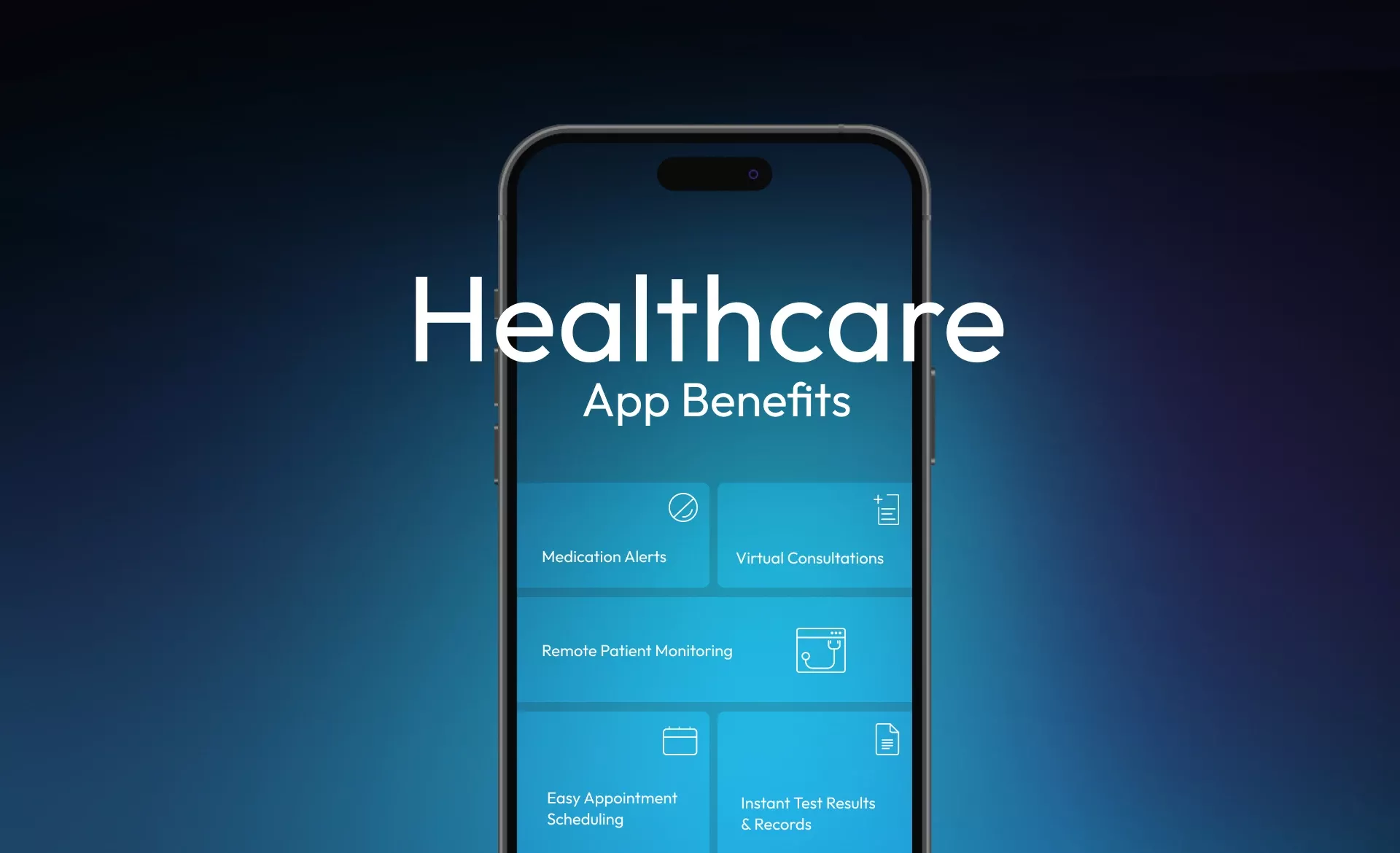
Healthcare mobile apps for patients offer several advantages, including:
Optimizing Appointment Scheduling and Communication
Letting patients handle their own scheduling, online check-ins, and prescription requests significantly streamlines operations.
This approach involves automation in healthcare, reducing the administrative load on healthcare staff and allowing them to focus more on patient care.
By giving patients more control over these tasks, you enhance the overall efficiency of your practice and create a smoother experience for everyone involved. It's a smart strategy to improve workflow and patient satisfaction.
Instant Access to Test Results and Medical Records
Medical care apps offer patients access to test results on the go, such as blood tests and X-rays, reducing the anxiety of waiting.
This real-time access allows patients to better understand their health and engage in more meaningful discussions with their providers. It also leads to quicker, more informed decisions about treatment options.
For healthcare providers, offering easy access to test results and medical records streamlines communication and boosts patient satisfaction.
Patients can track their health history, lab results, and medications without the need for paperwork or phone calls, empowering them to take a proactive role in their care.
Remote Patient Monitoring (RPM)
One of the benefits of mobile apps in healthcare is shown in enabling remote patient monitoring (RPM). This is especially useful for those managing chronic conditions like diabetes or heart disease.
With RPM, patients can use these apps to instantly record and send health data to their providers.
If any concerning issues arise, healthcare professionals can intervene quickly, helping to prevent serious complications.
Medication Reminders
It's easy to forget to take medication, whether it's cold medicine, birth control, or treatment for a chronic condition.
Mobility solutions allow sending reminders to take medication and refill prescriptions on time.
Some apps even provide information on potential side effects and drug interactions, adding an extra layer of safety.
Additionally, patients can use these apps to message their providers with any questions, making medication management more convenient and secure.
Virtual Consultations
Patients can now meet with doctors via video from their phones or computers through healthcare apps, eliminating travel and making care accessible to those in remote areas or with mobility challenges.
Virtual visits constitute one of the benefits of mobile apps in the healthcare industry, reducing the need for in-person appointments while maintaining quality service. Patients benefit from easy scheduling and timely access to care. Similarly, providers can address concerns efficiently from anywhere.
Incorporating virtual consultations into your practice boosts patient satisfaction, cuts operational costs, and expands your reach. It’s a smart, flexible solution that aligns with modern healthcare demands.
How Can You Boost Patient Engagement Through Mobile Health Apps?
To tap into the full potential of digital transformation in health tech, professionals can take note of the following practices.
Optimizing User Experience
A smooth, intuitive user experience (UX) is key to the success of mobile health apps. Prioritizing ease of use will ensure patients can easily navigate the app, access vital information, and stay engaged in their care.
In healthcare, great UX enhances patient interaction and improves outcomes, making the entire process more efficient and user-friendly. With a focus on effective interface design, healthcare management becomes more accessible and proactive for both patients and providers.
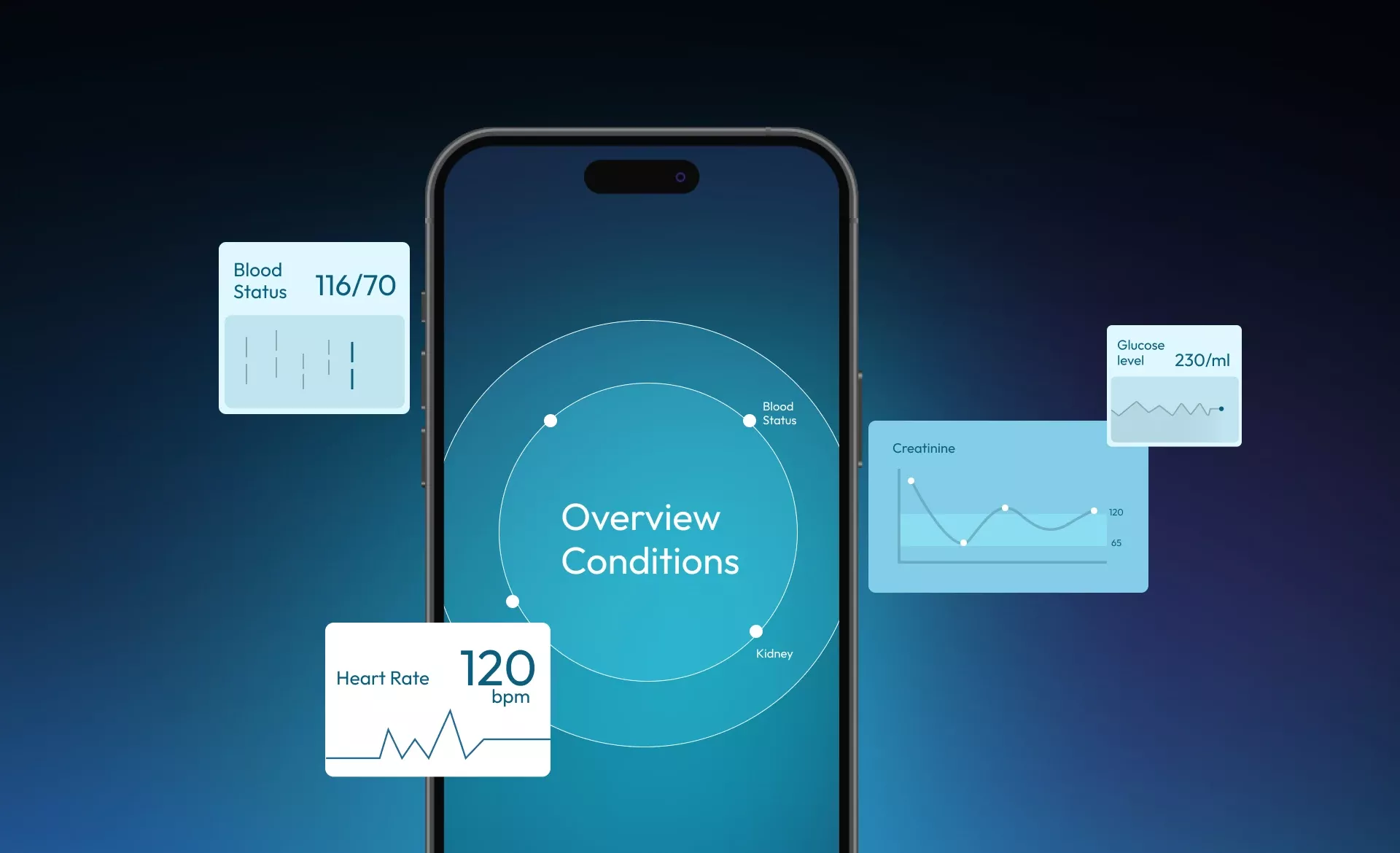
Collaborating with Healthcare Experts
Effective mobile health app development hinges on collaboration with healthcare professionals. Integrating clinical expertise, these apps not only meet technical requirements but also align with medical standards and patient needs.
This partnership-driven approach ensures these apps for healthcare workers are credible, effective, user-friendly, and medically accurate.
While some new players in the market may hesitate to engage healthcare experts, this approach emphasizes building strong relationships between developers, providers, and patients to create meaningful digital health solutions.
This collaboration results in apps that enhance patient outcomes and contribute to advancing the future of healthcare.
Unlock Business Value with Mobile Health Apps
The use of apps in healthcare offers significant business potential, enabling healthcare providers to deliver value-added services that boost patient loyalty and create new revenue streams.
By extending your offerings through premium features, teleconsultations, and remote monitoring, these apps become powerful tools for growth.
More than just digital tools, they are strategic assets that enhance your healthcare portfolio and drive profitability. It's not just about improving patient care—it's about strengthening your bottom line.
Wrapping Up
So, how can mobile apps help provide more efficient health care?
Mobile health apps are changing the landscape of healthcare by increasing patient engagement, personalizing healthcare experiences, and optimizing clinical operations. They serve as crucial links between healthcare providers and patients, providing immediate access to services and personal health information.
While challenges like data security and user adoption remain, the benefits of mobile apps in healthcare outcomes and enhancing patient satisfaction outdo them.
As we continue to innovate and improve these digital solutions, we are moving toward a more patient-centered approach to healthcare. Join us in embracing this meaningful change.
Email us or Talk to us at +91-98367-81929 or Simply Contact Us through the website.
Let's Connect



